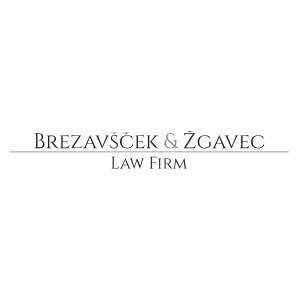Best Housing, Construction & Development Lawyers in Slovenia
Share your needs with us, get contacted by law firms.
Free. Takes 2 min.
Free Guide to Hiring a Real Estate Lawyer
Or refine your search by selecting a city:
List of the best lawyers in Slovenia
About Housing, Construction & Development Law in Slovenia
Housing, Construction & Development Law in Slovenia encompasses the regulations and legal frameworks related to the allocation, development, and utilization of land and real estate. This field covers a broad array of topics, including property acquisition, zoning laws, building permits, tenant-landlord relationships, and urban development. Laws are governed at both the national and municipal levels, ensuring the sustainable and equitable growth of housing infrastructure and urban planning. Slovenia's commitment to sustainable development is reflected in its focus on preserving cultural heritage, protecting the environment, and ensuring the efficient use of resources.
Why You May Need a Lawyer
Engaging a lawyer specialized in Housing, Construction & Development can be crucial in several scenarios:
1. **Property Transactions**: Whether buying, selling, or leasing property, legal advice is often necessary to navigate complex contracts and negotiations.
2. **Building and Land Use**: Obtaining permits and ensuring compliance with zoning laws can be intricate. Legal guidance is essential to navigate regulatory procedures and avoid legal pitfalls.
3. **Construction Disputes**: Conflicts might arise involving contractors, developers, and homeowners. A lawyer can help resolve issues related to construction defects, delays, or payment disputes.
4. **Tenant-Landlord Issues**: Understanding rental agreements, tenant rights, and eviction procedures often requires expert legal interpretation.
5. **Environmental Concerns**: Projects needing adherence to environmental regulations may require legal investigation to ensure compliance with the Slovenian law.
Local Laws Overview
Slovenia's legal framework governing housing and construction is extensive, incorporating several key aspects:
- **Real Estate Law**: Governs the ownership, use, and transfer of property. It includes regulations for property registration and transactions.
- **Building Act**: Establishes guidelines for construction activities, defining processes for obtaining necessary licenses and permits.
- **Spatial Planning Act**: Focuses on urban development, regulating land use planning to ensure balance between development needs and environmental protection.
- **Housing Act**: Provides the legal basis for tenant-landlord relationships, encompassing tenant rights, lease agreements, and management of rental properties.
- **Environmental Protection Act**: Influences construction projects through environmental impact assessments and sustainability requirements.
Compliance with the law is mandatory and can involve several governmental bodies for approvals and assessments.
Frequently Asked Questions
What is the process for acquiring a building permit in Slovenia?
The process involves submitting an application to the local administrative unit, including project documentation, plans, and environmental assessments. Approval must be obtained before construction begins.
What rights do tenants have in Slovenia?
Tenants have the right to a habitable property, to privacy, and to be informed about property issues. They are also protected against unjust eviction under the Housing Act.
How are property disputes typically resolved?
Property disputes can be resolved through negotiation, mediation, arbitration, or litigation. Engaging a legal expert can facilitate resolution by ensuring a fair and lawful process.
What are zoning laws, and why are they important?
Zoning laws regulate land use and building specifications in different areas, ensuring compatibility with urban planning objectives and prevention of overdevelopment.
Can foreigners buy property in Slovenia?
Yes, EU citizens and entities have the same rights as domestic buyers. Non-EU citizens may face restrictions, usually requiring reciprocity agreements between Slovenia and their home country.
What constitutes a construction defect?
Construction defects can include structural issues, problems with building material, or failing to meet building codes and standards. Legal recourse may be sought to rectify such issues.
How can I ensure compliance with environmental regulations?
Regular consultation with legal and environmental experts is advised during project planning stages, while adhering to environmental assessments and obtaining necessary certifications.
What happens if a construction project is delayed?
Delays in construction can lead to disputes. Resolution may involve renegotiation of terms, financial compensation, or litigating based on the contract's provisions.
Are there incentives for sustainable development?
Yes, Slovenia offers various incentives, such as grants and tax benefits, for projects incorporating sustainable practices and energy-efficient technologies.
How is land expropriation handled in Slovenia?
Expropriation occurs for public benefit projects, under laws ensuring fair compensation and due process to affected property owners.
Additional Resources
For further assistance or information, consider the following sources:
- **Ministry of the Environment and Spatial Planning**: Oversees spatial planning and environmental protection.
- **Chamber of Real Estate of Slovenia (ZPN)**: Offers resources and support for property-related matters in Slovenia.
- **Eco Fund (Eko sklad)**: Slovenia's environmental fund providing financial incentives for sustainable projects.
- **Municipal Administrative Units**: Local bodies managing building permits and spatial planning details.
Next Steps
If legal assistance is needed, the following steps can guide your path forward:
1. **Identify the Legal Issue**: Clearly define the nature of your legal concern, whether it's related to property transactions, construction, or regulatory compliance.
2. **Consult a Specialist**: Seek out a lawyer who specializes in Housing, Construction & Development Law. Their expertise can provide invaluable guidance through the intricacies of Slovenian regulations.
3. **Prepare Documentation**: Gather all relevant documents, including contracts, property deeds, correspondence, and any prior legal opinions.
4. **Engage in Initial Consultation**: Discuss your case with your chosen lawyer to understand potential actions and associated costs.
5. **Establish a Plan of Action**: Work collaboratively with your lawyer to create a strategy that addresses your specific legal needs and objectives.
By following these steps, you can better navigate the complexities of Housing, Construction & Development law in Slovenia and protect your interests effectively.
Lawzana helps you find the best lawyers and law firms in Slovenia through a curated and pre-screened list of qualified legal professionals. Our platform offers rankings and detailed profiles of attorneys and law firms, allowing you to compare based on practice areas, including Housing, Construction & Development, experience, and client feedback.
Each profile includes a description of the firm's areas of practice, client reviews, team members and partners, year of establishment, spoken languages, office locations, contact information, social media presence, and any published articles or resources. Most firms on our platform speak English and are experienced in both local and international legal matters.
Get a quote from top-rated law firms in Slovenia — quickly, securely, and without unnecessary hassle.
Disclaimer:
The information provided on this page is for general informational purposes only and does not constitute legal advice. While we strive to ensure the accuracy and relevance of the content, legal information may change over time, and interpretations of the law can vary. You should always consult with a qualified legal professional for advice specific to your situation.
We disclaim all liability for actions taken or not taken based on the content of this page. If you believe any information is incorrect or outdated, please contact us, and we will review and update it where appropriate.
Browse housing, construction & development law firms by city in Slovenia
Refine your search by selecting a city.
















